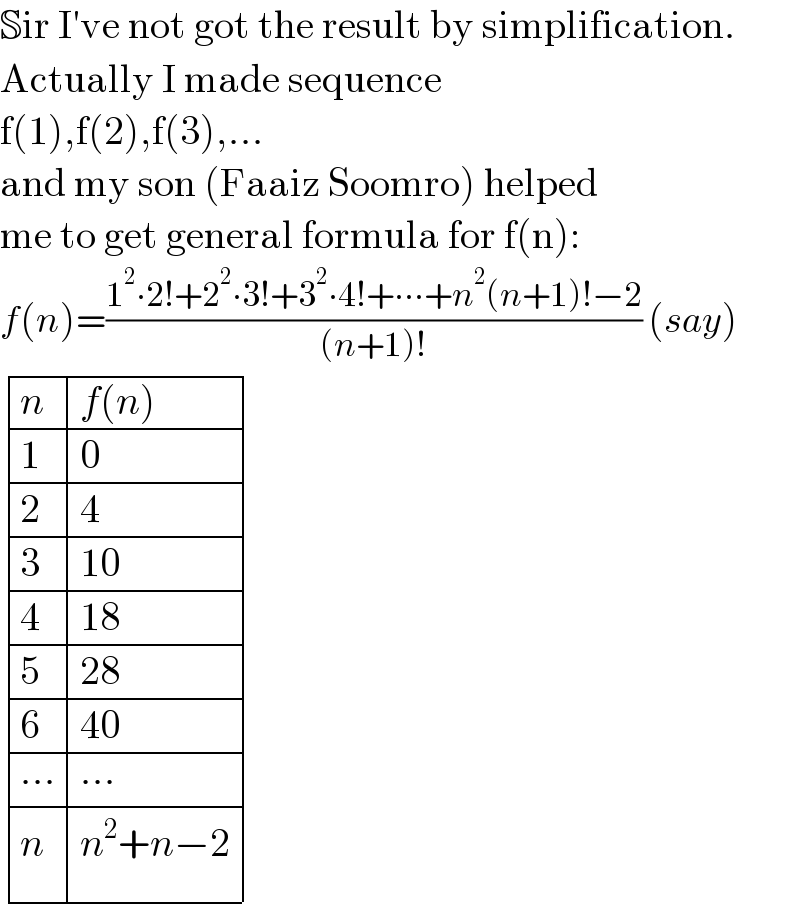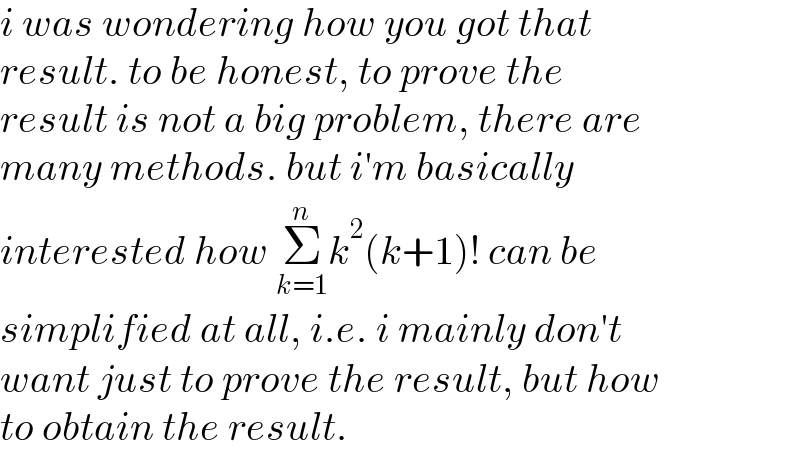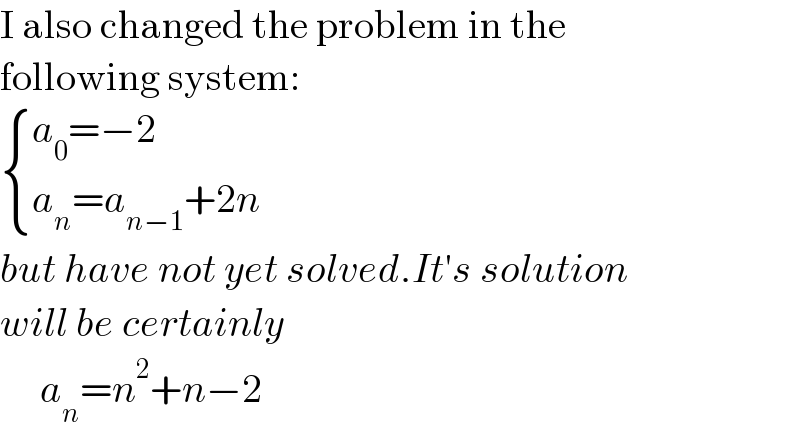
Question and Answers Forum
Question Number 161861 by Rasheed.Sindhi last updated on 23/Dec/21

Commented by mr W last updated on 23/Dec/21

Commented by Rasheed.Sindhi last updated on 24/Dec/21

Commented by Rasheed.Sindhi last updated on 24/Dec/21

Commented by mr W last updated on 24/Dec/21

Commented by mr W last updated on 24/Dec/21

Commented by Rasheed.Sindhi last updated on 24/Dec/21

Commented by mr W last updated on 24/Dec/21

Commented by Rasheed.Sindhi last updated on 24/Dec/21

Answered by mr W last updated on 23/Dec/21
![k^2 (k+1)! =(k+1−1)k(k+1)! =(k+1)k(k+1)!−k(k−1)k!−2kk! =(k+1)k(k+1)!−k(k−1)k!−2[(k+1)!−k!] Σ_(k=1) ^n k^2 (k+1)! =Σ_(k=1) ^n (k+1)k(k+1)!−Σ_(k=1) ^n k(k−1)k!−2[Σ_(k=1) ^n (k+1)!−Σ_(k=1) ^n k!] =Σ_(k=2) ^(n+1) k(k−1)k!−Σ_(k=1) ^n k(k−1)k!−2[Σ_(k=2) ^(n+1) k!−Σ_(k=1) ^n k!] =(n+1)n(n+1)!−2[(n+1)!−1!] =(n^2 +n−2)(n+1)!+2 Σ_(k=1) ^n k^2 (k+1)!−2=(n^2 +n−2)(n+1)! ((Σ_(k=1) ^n k^2 (k+1)!−2)/((n+1)!))=n^2 +n−2=(n−1)(n+2) ✓](Q161890.png)
Commented by mr W last updated on 23/Dec/21

Commented by Rasheed.Sindhi last updated on 24/Dec/21

